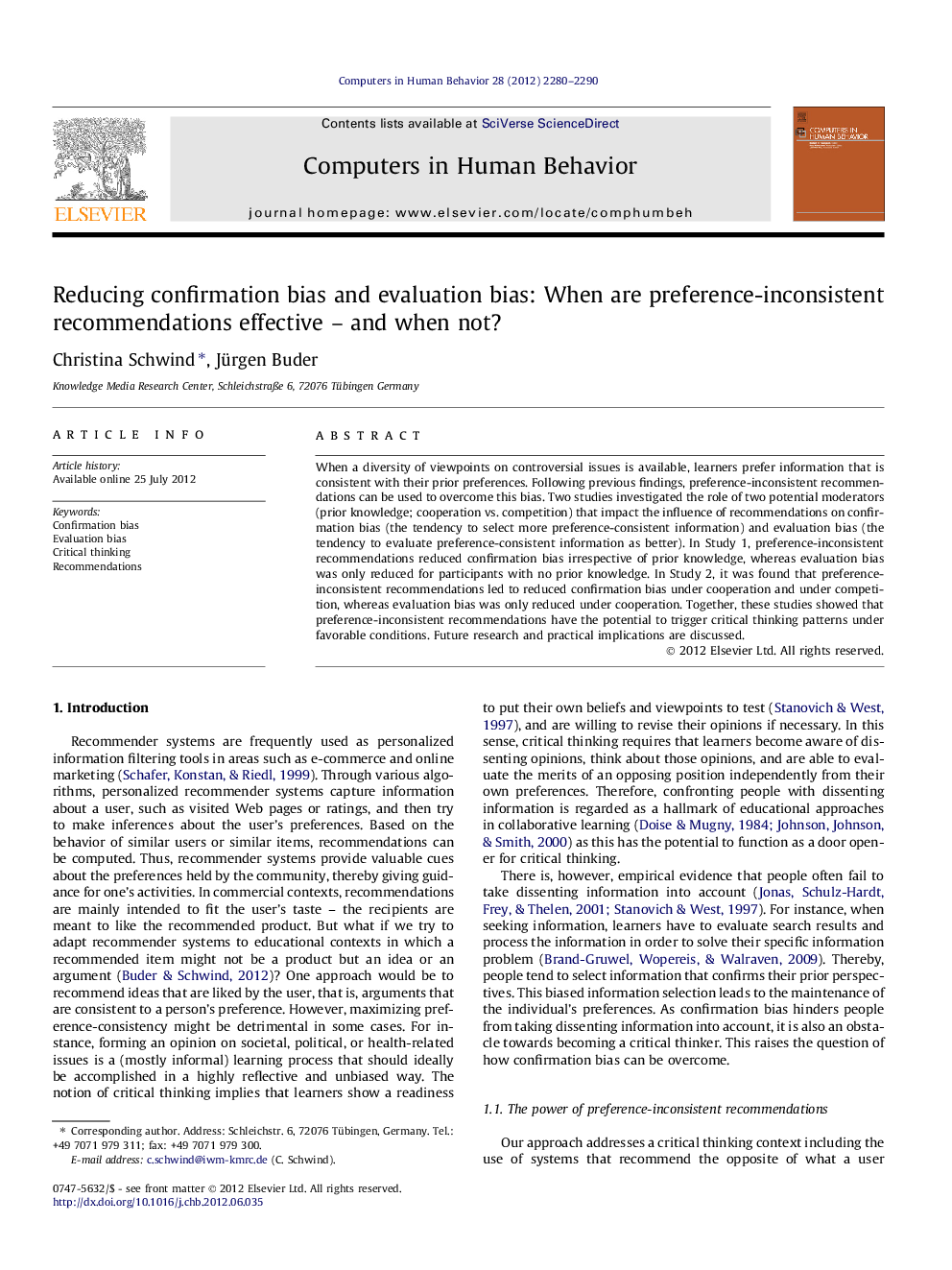| کد مقاله | کد نشریه | سال انتشار | مقاله انگلیسی | نسخه تمام متن |
|---|---|---|---|---|
| 351315 | 618467 | 2012 | 11 صفحه PDF | دانلود رایگان |

When a diversity of viewpoints on controversial issues is available, learners prefer information that is consistent with their prior preferences. Following previous findings, preference-inconsistent recommendations can be used to overcome this bias. Two studies investigated the role of two potential moderators (prior knowledge; cooperation vs. competition) that impact the influence of recommendations on confirmation bias (the tendency to select more preference-consistent information) and evaluation bias (the tendency to evaluate preference-consistent information as better). In Study 1, preference-inconsistent recommendations reduced confirmation bias irrespective of prior knowledge, whereas evaluation bias was only reduced for participants with no prior knowledge. In Study 2, it was found that preference-inconsistent recommendations led to reduced confirmation bias under cooperation and under competition, whereas evaluation bias was only reduced under cooperation. Together, these studies showed that preference-inconsistent recommendations have the potential to trigger critical thinking patterns under favorable conditions. Future research and practical implications are discussed.
► Confirmation bias and evaluation bias hinder unbiased opinion formation.
► Preference-inconsistent recommendations can reduce confirmation bias.
► Two studies investigated potential moderators for this effect.
► Prior knowledge and cooperation/competition were identified as moderators.
Journal: Computers in Human Behavior - Volume 28, Issue 6, November 2012, Pages 2280–2290